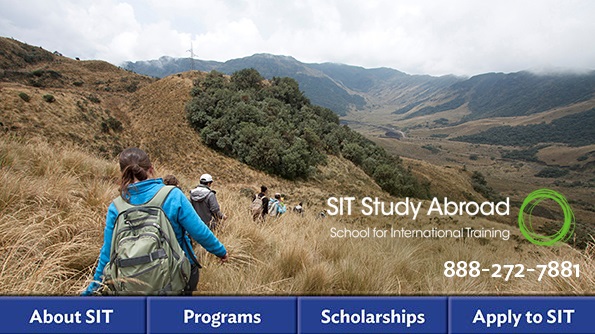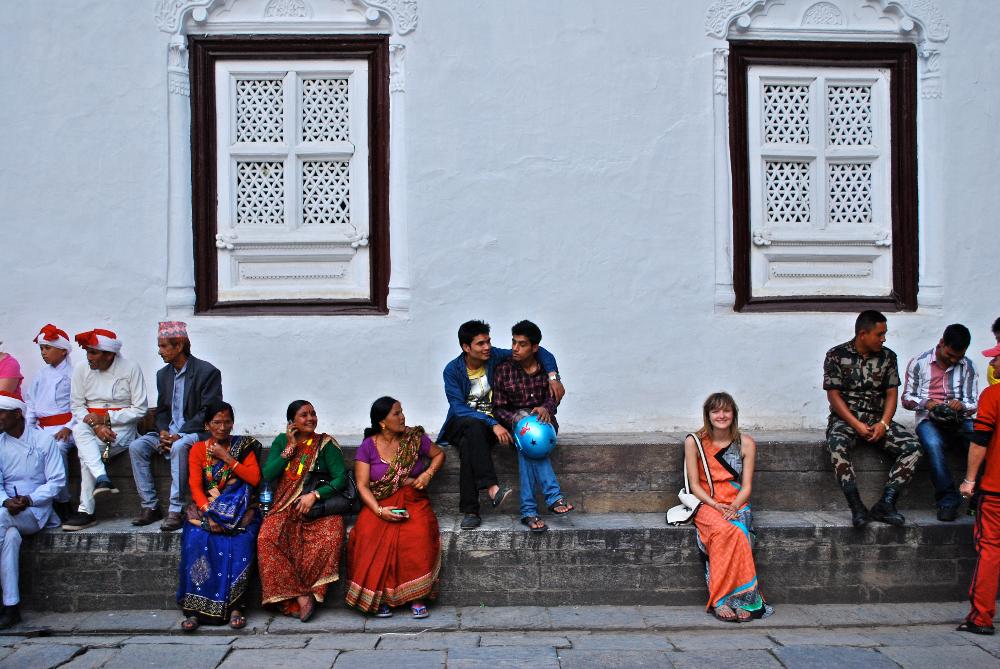
International Honors Programs (IHP) are unique within SIT’s portfolio. In one semester, you’ll deeply examine a single issue, such as climate change, healthcare, or human rights, in four cultural contexts on four continents.
Key Questions Explored on this Program
- How are human rights universal?
- What are the root causes that incite struggles for human rights in different locations?
- What impacts do international institutions such as the UN have on securing human rights?
- What is the role of popular mobilization and activism? How can solidarity across borders be built on a human rights platform?
Please visit the SIT Study Abroad website for details on the program courses (including syllabi), program sites, and housing.
Recent Program Sites
- New York City, US
- Kathmandu, Nepal
- Amman, Jordan
- Santiago, Chile
There is no "typical day"on an SIT International Honors Program. Activities may take place on any day of the week and at any time of day to be in accordance with local norms and to take advantage of once-in-a-lifetime learning opportunities. Thus, the schedule and structure of the program are likely very different from what students are used to on their home campuses. The semester progresses in phases:
- The program begins in a US city, where students receive an introduction to the program’s theme, examine that theme in a US context, and prepare for travel to the other program sites.
- The program then spends four or five weeks in each of the other program sites where students:
- are introduced to field experiences by exploring neighborhoods,
- live with a host family, and
- examine the interconnections of the economy, the environment, politics, and society in vastly different contexts.
- Each program is composed of four courses, totaling 16 credits.
- Students produce a cumulative study project involving comparative research from across the semester.
- SIT Study Abroad offers a field-based, experiential approach to learning.
- Each program has a small group of students (typically 10–35).
- On an SIT program, students gain high levels of access to many different stakeholders and experts relevant to the issues the program is examining.
- Extensive learning is done outside the classroom — in host communities, field stations, NGO headquarters, ecological sites, health clinics, and art studios.
- Many students go on to use their research project as a basis for senior theses on their home campuses. Others use their undergraduate research and overall study abroad experience to successfully apply for fellowships such as Fulbrights and Watsons.
Money Matters
Be sure to discuss how study abroad costs are handled at your school with your study abroad advisor.
SIT tuition and room and board fees include the following:
- All educational costs, including educational excursions
- All accommodations and meals for the full program duration
- Transportation to and from the airport, and on all educational excursions
- Health and accident insurance
- SIT awards nearly $1.3 million in scholarships and grants annually.
- All scholarships and grants are need-based.
- Awards generally range from $500 to $5,000.
- The SIT Pell Grant Match provides matching grants to all students receiving Federal Pell Grant funding when it is applied to an SIT Study Abroad semester program.
- Contact the financial aid and/or study abroad office(s) at your college or university to learn if your school’s scholarships and grants and federal and state aid programs can be applied to an SIT Study Abroad program.
Contact SIT Study Abroad
.png)